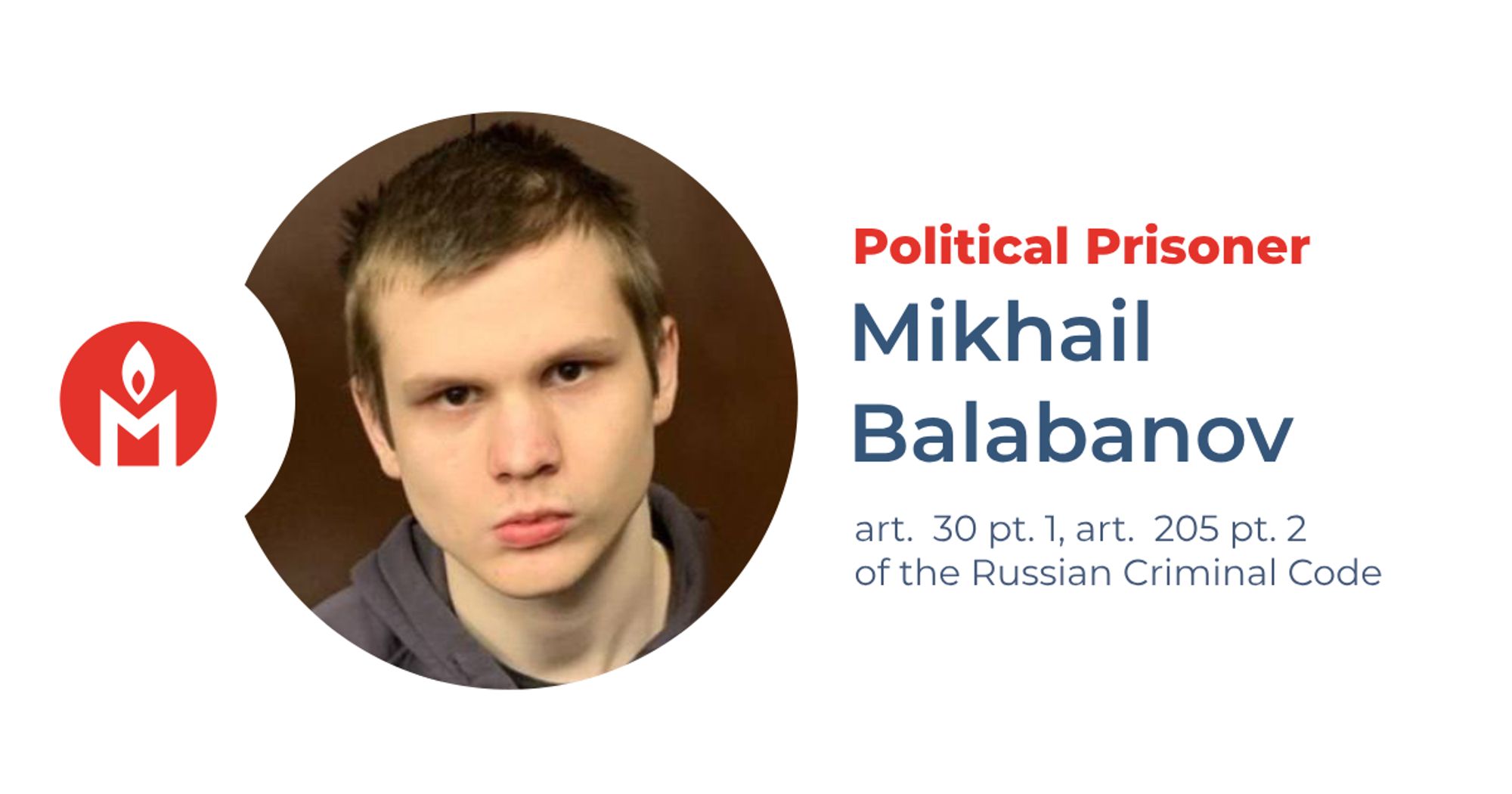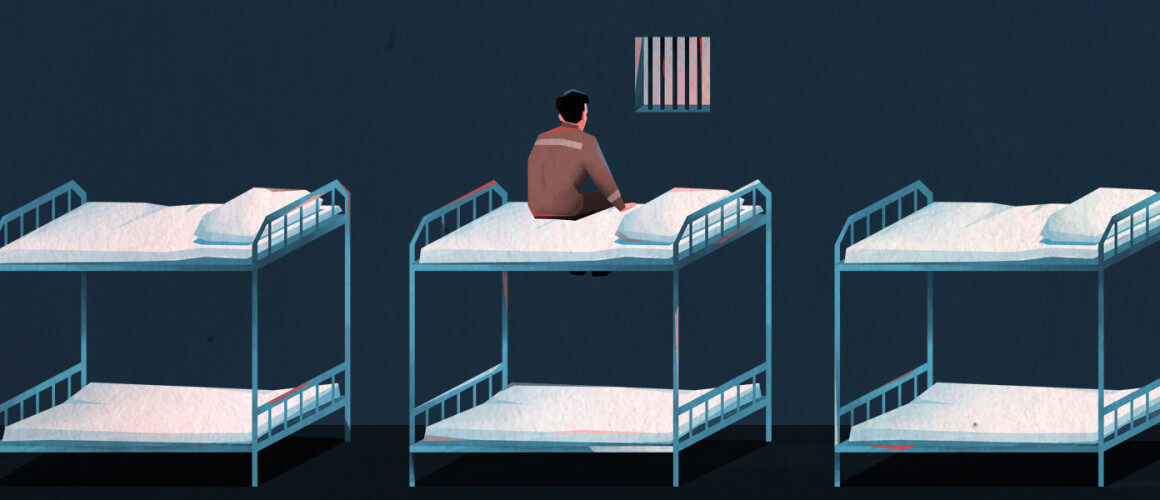Mikhail Balabanov is a political prisoner
He has been sentenced to four and a half years’ imprisonment on a charge of preparing a terrorist attack for allegedly making a Molotov cocktail on the instructions of a ‘Ukrainian intelligence officer’
The ‘Political Prisoners. Memorial’ human rights project, in accordance with international standards, considers Mikhail Balabanov a political prisoner. Balabanov has been convicted of making preparations for an act of terrorism on the grounds that he allegedly intended to set fire to a military recruitment centre on the instructions of the Ukrainian security services. The criminal case, which most likely was the result of a provocation by Russia’s security services and involved the fabrication of evidence, violates Balabanov’s right to fair trial. We demand the release of Mikhail Balabanov and the quashing of his conviction.

What were the charges against Mikhail Balabanov?
In the autumn of 2022, 20-year-old Mikhail Balabanov, a graduate of an aviation college from Kazan, on several occasions received a summons to join the Russian army. However, he did not want to serve in the army and began looking for a way to leave Russia. Balabanov phoned the Ukrainian project, ‘I Want to Live’ but received no response. Later, he was contacted via Telegram by a man who identified himself as a representative of the project and an agent of Ukrainian intelligence with the call sign ‘Ben.’ This man promised to help Balabanov leave Russia.
On ‘Ben’s’ advice, Balabanov travelled to Nevinnomyssk in Stavropol Krai in south Russia where he rented an apartment and began certain ‘tasks.’ He photographed the local military recruitment centre, among other things, and then made a Molotov cocktail. All this time he was under surveillance by Russian security services.
On 19 December 2022, ‘Ben’ proposed that Balabanov film mobilised men at the military recruitment office. When Balabanov arrived, FSB officers were waiting for him. During a search of the place where Balabanov had been living, bottles of an incendiary mixture were found. Balabanov was remanded in custody on charges of making preparations for an act of terrorism (Article 205, Part 1, in conjunction with Article 30, Part 1, of the Russian Criminal Code) for allegedly planning to set fire to the military recruitment office.
On 22 May 2024, Mikhail Balabanov was sentenced to four and a half years’ imprisonment, with the first two years to be served in a cell-type prison and the remainder in a strict-regime penal colony.
Why do we consider Balabanov a political prisoner?
Balabanov was the victim of an act of provocation by the authorities that is prohibited in law. The correspondence with Balabanov was probably conducted by FSB officers, who also told him what to do and gave him money to rent an apartment and buy ingredients for Molotov cocktails. Evidence for this is that the case materials do not explain how investigators gained access to Balabanov’s correspondence with ‘Ben,’ given that it was not on Balabanov’s phone.
According to Balabanov, the correspondence was also fabricated. He claimed that he did not plan to set fire to the military recruitment centre and had never agreed to do so. The prosecution presented no convincing evidence that the correspondence was authentic.
At the same time, even if Balabanov had planned to set fire to the military recruitment centre, this would not have constituted ‘preparation for an act of terrorism.’ The investigators did not prove that Balabanov’s purpose was either to destabilise the activities of the authorities or to intimidate the population, actions which are defining features of terrorism.
Setting fire to a military recruitment centre could be classified as destruction or damage to property by means of arson. However, preparation for an offence of this kind is not subject to criminal liability under the Russian Criminal Code because it is not a serious crime.
A detailed description of Mikhail Balabanov’s case and of our position is available on our website.
Recognition of an individual as a political prisoner does not imply the ‘Political Prisoners. Memorial’ human rights project agrees with, or approves, their views, statements, or actions.
How can you help?
Mikhail Balabanov is supported by the project Solidarity Zone.
You can donate to support all political prisoners in Russia.

